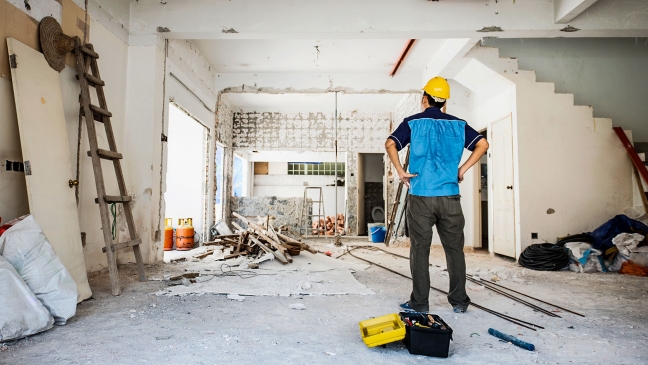Schools have had to deal with plenty of new challenges over the past few years.
It’s hard to say what teachers and leaders have found toughest but the assessment rollercoaster is right up there.
The 2020 algorithm that went wrong; then dealing with the U-turn; then seeing exams cancelled again in 2021 and having to invent their own plan for grading.
This year has seemed positively calm, even though we’ve seen a big drop in grades as the government tries to return the system to normal.
GCSEs and A levels: pressure to change the exams system
For some, this chaos has proved that our exams system is fatally flawed and needs a complete overhaul.
Other countries, where end-of-course written assessments are less important, made it through Covid with much less fuss.
The NEU teaching union, for instance, has seized on the difficulties here to press its long-held view that teacher assessment should play a bigger role in our system.
The political, academic and commercial worthies gathered together to form the Times Education Commission concurred that our current system is beyond repair and proposed a new slimmed-down assessment at 16, which includes continuous assessment, and a “British Baccalaureate”, consisting of six subjects, instead of A levels.
This latter suggestion has been adopted by Conservative Party leadership candidate Rishi Sunak during his campaign to become prime minister.
Entirely the wrong approach
However, in a report published today by the Institute for Government, I argue that this is entirely the wrong approach.
Proposals for total reform of assessments always make the same error of focusing on the potential benefits while ignoring the substantial cost and impact of change and the purposes of the current system, in terms of what it is designed to achieve.
The first of these concerns will, I suspect, be obvious to most teachers and leaders, who tend to be much more suspicious of assessment reform than politicians and businesspeople.
At the moment more or less everyone working in a school is exhausted, dealing with the effects of inflation on school funding and of brutal poverty on many children.
The last thing they need is a new exam system to be worrying about.
The second concern is, perhaps, less obvious. Many of the arguments commonly used against the current assessment system largely ignore why we have the exams we do.
For instance, one key purpose is to help post-16 institutions, higher education and employers to make selection decisions. UK universities are unusually selective compared with most European ones and that puts much more pressure on the reliability of our exams, which is why the 2020 algorithm was such a point of contention.
It is this need for reliability that drives much of the English model of assessment, and this is why continuous assessment and coursework, which are much harder to make accurate and fair, are used less.
This should particularly concern those of us who worry about social inequality, as the more leeway that is built into assessment systems, the more it tends to benefit those who are wealthy.
The higher the stakes, the more this is true.
What about the consequences?
But making our universities less selective would be extremely tricky, and may not even be desirable.
After all, UK higher education institutions tend to be much more respected globally than their French or German counterparts. It is these complex trade-offs and interactions that bold new visions of assessment reform tend to ignore.
The same is true if we look at school-level accountability. The Times Education Commission proposed that only five subjects be assessed at 16.
Yet if schools were to be held to account for these results, as they are for GCSEs, then they would obviously focus on those five subjects at the expense of the rest of the curriculum.
We have seen this happen with primary science. After it stopped being externally assessed in key stage 2 tests in 2010, the time spent on it decreased, causing a genuine drop-off in attainment that is visible in international comparative studies like the Programme for International Student Assessment (Pisa).
No doubt many in the sector would like to get rid of such accountability, but again the trade-off here is potentially substantial.
Overly punitive accountability can lead to perverse incentives and distortions, but no or very limited accountability can mean failure goes unnoticed for a long time.
Slow and steady will win the race
Prior to Lord Blunkett introducing floor standards when he was education secretary, we had far more genuinely underperforming schools than we do now, and they tended to be in the less wealthy parts of the country.
All of these issues can be debated, of course, but the point is they are complex and interconnected. A large change to assessment has all sorts of knock-on effects, many of which can’t be easily predicted in advance.
My proposal is not that we stick permanently with the status quo, which is certainly imperfect, but that we adopt a new model of incremental improvement rather than overhaul.
Lots of smaller things that could meaningfully improve exams, and allow a wider range of types of assessment, have been put on hold.
For instance, online marking, the use of artificial intelligence in examining or the use of comparative judgement.
The government should work with Ofqual and a commission of school leaders and assessment experts to properly review the system against a clear and transparent set of purposes, identify areas for improvement, and set out a proper plan, with time for trials and evaluation.
We can have a better, fairer system but it doesn’t require another few years of total upheaval to get us there.
Sam Freedman is a former senior policy adviser at the Department for Education and a senior fellow at the Institute of Government





